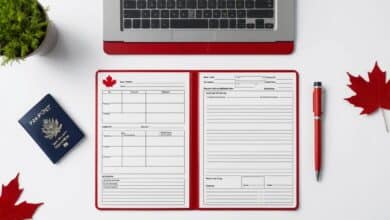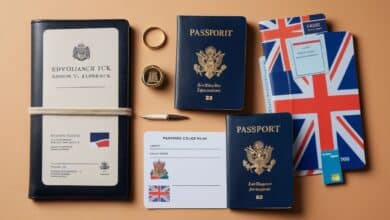Spanish Living: Benefits and Advantages of Visa Sponsorship and Marriage Visas
Spain is one of the most popular destinations globally, attracting over 85 million tourists in 2023.
Its rich culture, stunning landscapes, and vibrant cities make it a top choice for travelers and expats alike. For those planning to stay longer, the country offers various visa options to suit different needs.
As part of the Schengen Area, visitors from visa-exempt countries can enjoy a 90-day stay within a 180-day period without needing a visa. This flexibility makes it easy for short-term travelers to explore the country. For longer stays, options like the Digital Nomad Visa, Golden Visa, and Non-Lucrative Residence Visa provide pathways to residency.
Marriage visas also offer significant advantages, allowing family reunification and a clear path to residency. Whether you’re relocating for work, love, or leisure, Spain provides opportunities to make your stay seamless and rewarding.
Introduction to Visa In Spain
Exploring the Schengen Area offers travelers flexibility and ease of movement. For short-term stays, the Schengen visa allows visitors to enjoy up to 90 days within a 180-day period. This rule applies to travelers from visa-exempt countries, making it ideal for tourism or business trips.
However, for stays exceeding three months or for purposes like employment, studies, or family reunification, a national long-stay visa is required. These visas are tailored to specific needs and provide a pathway to longer residency.
EU, EEA, and Swiss citizens are exempt from visa requirements, thanks to freedom of movement agreements. For others, meeting financial thresholds is essential. For example, tourists must prove they have at least €114 per day to cover expenses.
“Understanding the difference between Schengen and national visas is crucial for planning your stay.”
Whether you’re visiting for a short trip or planning a longer stay, knowing the visa rules ensures a smooth and stress-free experience. The Schengen Area’s streamlined process makes it a popular choice for travelers worldwide.
Types of Visas Available in Spain
Spain offers a variety of visa types to cater to different travel and residency needs. Whether you’re planning a short visit or a long-term stay, understanding the options available can make the process smoother.
Short-Stay Visas
Short-stay visas are ideal for travelers visiting for up to 90 days. These include the Schengen visa, which covers purposes like tourism, business, and medical treatment. There are several categories under this type:
- Transit Visa: For travelers passing through airports.
- Tourist Visa: For leisure and sightseeing purposes.
- Business Visa: For meetings, conferences, or work-related activities.
- Medical Visa: For those seeking medical treatment.
These visas are perfect for short-term stays and provide flexibility for travelers exploring the country.
Long-Stay Visas
For stays exceeding 90 days, long-stay visas are necessary. These are tailored to specific needs, such as work, study, or investment. Some popular options include:
- Work Visa: Requires sponsorship from a Spanish employer.
- Student Visa: For those pursuing education in Spain.
- Golden Visa: For investors purchasing property worth €500,000 or more.
- Entrepreneur Visa: For individuals starting a business in Spain.
- Non-Lucrative Visa: For those with a passive income of at least €28,800 annually.
These visas provide pathways to longer residency and are ideal for those planning to settle in the country.
“Choosing the right visa ensures a smooth transition to life in Spain.”
Whether you’re a digital nomad, investor, or student, Spain’s visa options cater to diverse needs. Understanding the requirements and benefits of each type can help you make an informed decision.
Understanding Visa Sponsorship in Spain
Employers play a key role in the visa sponsorship process for foreign workers. To sponsor an employee, a Spanish employer must provide a formal job offer and meet specific obligations. This includes ensuring the role cannot be filled by a local candidate and complying with financial and legal requirements.
Sponsorship involves submitting several documents. These include the employment contract, tax compliance certificates, and proof of the company’s financial stability. Employers must also register the employee with the social security system, ensuring they are covered under Spanish labor laws.
For highly qualified professionals, additional criteria apply. The employee must earn a minimum annual salary of €40,000. This threshold ensures that the role meets the standards for a Highly Qualified Professional visa, which is designed to attract top talent.
Certain sectors are exempt from the labor market test, a process that proves no local candidate is available for the role. Strategic industries like technology, engineering, and healthcare often qualify for these exemptions, streamlining the sponsorship process.
Key steps in the sponsorship process include:
- Providing a valid employment contract.
- Submitting proof of the company’s financial health.
- Ensuring the employee meets salary and qualification requirements.
- Registering the employee with the social security system.
By understanding these requirements, both employers and employees can navigate the sponsorship process smoothly. Proper preparation and documentation are essential for a successful application.
Marriage Visas: What You Need to Know
Marriage visas provide a clear path for family reunification and long-term residency. These visas are ideal for couples who wish to live together legally. Whether you’re in a legal marriage or a registered partnership, understanding the requirements is essential.
Eligibility depends on the type of relationship. Legal marriages are recognized, but registered partnerships may also qualify in some cases. Both scenarios require proper documentation to prove the relationship’s validity.
Applicants must submit several documents. These include an apostilled marriage certificate and the Spanish spouse’s NIE (Foreigner Identification Number). These documents serve as proof of the relationship and the spouse’s residency status.
Financial requirements are also critical. The sponsoring spouse must show an annual income of at least €27,115. This ensures that the couple can support themselves without relying on public funds.
One of the key benefits of a marriage visa is the path to citizenship. After five years of legal residency, holders can apply for Spanish citizenship. This timeline makes it an attractive option for long-term planning.
“Proper documentation and financial stability are crucial for a successful marriage visa application.”
Processing times vary depending on the applicant’s nationality. For EU citizen spouses, the process is often faster. Third-country nationals may wait between three to six months for approval.
Understanding these details ensures a smooth application process. Whether you’re reuniting with your spouse or planning for the future, marriage visas offer a reliable solution.
Benefits of Obtaining a Visa In Spain
Securing a visa opens doors to a range of benefits that enhance quality of life. For those planning to relocate, these advantages make the transition smoother and more rewarding.
One of the most significant perks is access to the Schengen area. Holders can travel freely across 26 European countries without additional permits. This flexibility is ideal for business trips, family visits, or leisure travel.
Another key advantage is access to public healthcare. After registering with the social security system, individuals can enjoy Spain’s high-quality medical services. This ensures peace of mind for families and individuals alike.
Education is another area where visa holders benefit. Students can take advantage of EU university fee structures, making higher education more affordable. This is particularly appealing for families relocating with children.
For long-term planning, a visa offers a pathway to permanent residency. After five continuous years of legal stay, individuals can apply for this status. It provides stability and opens up further opportunities.
“The journey to citizenship begins with a visa, offering a clear path to long-term settlement.”
Finally, those from Ibero-American countries can enjoy dual citizenship allowances. This unique benefit allows individuals to retain their original nationality while gaining Spanish citizenship after ten years of residency.
Understanding these benefits helps individuals make informed decisions about their relocation plans. Whether for travel, healthcare, or education, a visa provides a foundation for a better future.
Step-by-Step Guide to Applying for a Visa
Applying for a visa can seem overwhelming, but breaking it into steps makes it manageable. The process involves gathering documents, completing the application form, and scheduling an appointment. Each step is crucial for a successful submission.
Gathering Required Documents
Start by collecting all necessary documents. These include a valid passport with at least three months of validity, proof of financial stability, and evidence of accommodation. Additional items may include apostilled birth certificates, police clearance, and medical certificates.
Ensure all documents are translated into Spanish by a certified translator. This step is essential for non-Spanish documents to be accepted. Having everything prepared in advance saves time and avoids delays.
Filling Out the Application Form
Next, complete the application form. For national visas, use Form EX-17. This form requires personal details, travel plans, and the purpose of the visit. Double-check all entries to avoid errors that could lead to rejection.
Include supporting documents such as medical insurance covering at least €30,000 and proof of financial means. These provide the necessary proof to meet visa requirements.
Scheduling an Appointment
Once the application form and documents are ready, schedule an appointment. Use platforms like TLScontact or VFS Global to book a slot. During the appointment, applicants provide biometric data, including fingerprints and a photograph.
Bring all original documents and copies to the appointment. This ensures a smooth process and avoids last-minute issues. After submission, applicants receive a receipt to track their application status.
“Proper preparation and attention to detail are key to a successful visa application.”
Following these steps ensures a streamlined process. Whether it’s gathering documents, completing the application form, or scheduling an appointment, each step brings you closer to your goal.
Visa Application Fees and Payment Process
Understanding the costs involved in the visa process is essential for a smooth application experience. Fees vary depending on the type of visa and the applicant’s age. For instance, a Schengen visa costs €90 for adults and €45 for children aged 6 to 12. National visas, on the other hand, range from €80 to €190, depending on the category.
- Student visas: Typically cost €80, making them an affordable option for those pursuing education.
- Work visas: Range from €80 to €190, depending on the employment category.
- Investor visas: Often fall on the higher end of the fee scale, reflecting the financial requirements of the program.
Payment methods are flexible, allowing applicants to choose what works best for them. Accepted options include credit cards, bank transfers, and cash. However, it’s important to confirm the preferred method with the specific consulate or application center.
Certain groups are eligible for fee exemptions. Researchers, students on exchange programs, and family reunification applicants often qualify for reduced or waived fees. This makes the process more accessible for those with specific needs.
“Always check for exemptions or discounts before submitting your application to avoid unnecessary costs.”
If an application is rejected, refund policies vary. Some consulates may refund the fee, while others retain it as an administrative cost. Additionally, VFS or TLS centers may charge extra service fees, so applicants should budget accordingly.
By understanding the fee structure and payment process, applicants can plan their finances effectively. This ensures a stress-free experience and avoids last-minute surprises.
Processing Time for Visa Applications
The time it takes to process applications can vary significantly depending on the type and season. For Schengen submissions, the standard processing time is 15 calendar days. However, national categories may take between one to four months for approval.
During peak seasons, such as summer, delays can extend up to 60 days. To avoid setbacks, ensure your application is complete and includes all required documents. Incomplete submissions often lead to longer wait times.
For urgent cases, expedited options are available. Emergency submissions are prioritized, reducing the processing time significantly. Applicants can track their status using the SEDEX system, which provides real-time updates.
Seasonal variations also play a role. Winter months typically see faster approvals due to lower volumes. Planning your submission during these periods can help streamline the process.
“A complete and well-prepared application is the key to minimizing delays and ensuring a smooth process.”
Understanding these factors helps manage expectations and plan effectively. Whether you’re applying for a short-term or long-term stay, knowing the timeline ensures a stress-free experience.
Common Reasons for Visa Rejection
Many applicants face rejection due to avoidable mistakes. Understanding these common reasons can help streamline the process and increase approval chances. One of the top causes is insufficient financial proof. Applicants must show they have at least €114 per day to cover expenses during their stay.
Another frequent issue is invalid insurance. Policies must cover at least €30,000, including repatriation. Without this, applications are often denied. Incomplete documentation is another major hurdle. Missing apostilles or translations can lead to immediate rejection.
Previous immigration violations also impact current applications. Overstaying or breaching conditions in the past can raise red flags. Misrepresentation of travel intentions is another serious concern. Providing false information or unclear plans can result in denial.
“Avoiding these pitfalls ensures a smoother application process and reduces the risk of rejection.”
By addressing these application errors, applicants can improve their chances of success. Proper preparation and attention to detail are key to navigating the process effectively.
Appealing a Visa Rejection
Facing a visa rejection can be disheartening, but understanding the appeal process can turn things around. Applicants have a 30-day window to submit a formal recurso de reposición to the consulate. This legal request challenges the decision and provides an opportunity to address any issues.
The appeal process involves several steps. First, gather all necessary documents, including the rejection letter and additional evidence to support your case. Next, submit the formal appeal within the deadline. Missing this window can result in the rejection becoming final.
Key documents for a successful appeal include:
- Original rejection letter.
- Updated financial proof or insurance documents.
- Any missing paperwork that led to the initial denial.
Immigration lawyers can play a crucial role in this process. They help prepare a strong case, ensure all documents are in order, and represent applicants during hearings. Their expertise often increases the chances of a favorable outcome.
“A well-prepared appeal can reverse a rejection, but timing and accuracy are critical.”
Statistics show that appeal success rates vary by category. For instance, family reunification appeals have a higher approval rate compared to tourist applications. Understanding these trends can help set realistic expectations.
If an appeal isn’t successful, reapplication is an alternative. This involves addressing the reasons for the initial rejection and submitting a stronger application. Strategies like improving financial proof or clarifying travel intentions can make a difference.
Whether you choose to appeal or reapply, seeking legal assistance can streamline the process. Professionals guide you through the steps, ensuring compliance with all requirements and improving your chances of success.
Extending Your Stay in Spain
Planning to stay longer in the country? Extending your stay is possible under certain conditions. Whether due to unforeseen circumstances or a change in plans, understanding the process is essential.
Extensions are typically granted for force majeure or humanitarian reasons. Applicants must submit their request before the current validity period expires. This ensures a smooth transition without legal complications.
Eligible scenarios include medical emergencies, family reunification, or unexpected delays in travel plans. Documentation such as medical certificates or proof of family ties is required to support the application.
The process involves submitting an application through the Extranjería offices. Applicants must provide their current residence permit, proof of financial stability, and any additional documents relevant to their case.
For students transitioning to work permits, the process is streamlined. Graduates can apply for a work permit within six months of completing their studies. This allows them to continue their journey without interruption.
Financial requirements are also a key factor. Applicants must demonstrate they can support themselves during the extended stay. This includes proof of income or savings to cover living expenses.
“Overstaying your permit can lead to fines, deportation, or future entry bans. Always apply for an extension before your current permit expires.”
By understanding the requirements and process, individuals can successfully extend their stay. Proper preparation and timely submission are crucial for a positive outcome.
Permanent Residency and Citizenship Options
For those planning to settle long-term, understanding residency and citizenship options is essential. These pathways provide stability and opportunities for individuals and families. Whether you’re aiming for permanent residency or full citizenship, knowing the requirements can make the process smoother.
Pathways to Permanent Residency
Permanent residency is often the first step toward long-term settlement. After five years of continuous legal residence, individuals can apply for this status. Continuous residence means staying in the country without significant breaks. This period is calculated based on the time spent under valid permits.
Applicants must meet certain criteria, including financial stability and integration into society. Proof of income, tax compliance, and language proficiency may be required. Permanent residency offers the freedom to live and work without renewing permits.
Obtaining Spanish Citizenship
Citizenship is the ultimate goal for many long-term residents. The standard requirement is ten years of legal residence. However, exceptions exist for specific groups. Latin Americans can apply after two years, while spouses of citizens qualify after just one year.
Applicants must pass two exams: the DELE A2 for language proficiency and the CCSE for cultural knowledge. Preparation resources are widely available to help candidates succeed. Citizenship grants full rights, including voting and access to public services.
For those with Sephardic ancestry, additional pathways are available. Proof of lineage and cultural ties can expedite the process. Military service exemptions also apply in certain cases.
Dual citizenship is allowed for Ibero-American nationals. However, others must renounce their original nationality. This restriction is an important consideration for applicants.
“Understanding the requirements and timelines for residency and citizenship ensures a smoother journey toward long-term settlement.”
By exploring these options, individuals can make informed decisions about their future. Whether aiming for permanent residency or full citizenship, proper preparation is key to success.
Living in Spain: What to Expect
Life in this vibrant country offers a mix of culture, affordability, and modern amenities. For expats, understanding the cost of living and adapting to local customs are key to a smooth transition. Monthly expenses typically range from €1,200 to €2,000, depending on the region and lifestyle.
Regional cost comparisons reveal differences between cities. Madrid is the most expensive, while Valencia and Andalusia offer more affordable options. Housing, groceries, and transportation costs vary, so budgeting wisely is essential.
Healthcare is another highlight, ranked 7th globally by the WHO. Expats can choose between public and private systems. Public healthcare is free for residents, while private plans offer faster access to specialists and services.
For families, the education system is a major consideration. Public schools are free, but international schools provide bilingual programs and familiar curricula. Cultural adaptation can be challenging, but resources like language classes and expat communities help ease the process.
Transportation infrastructure is well-developed, with options like AVE trains and extensive bus networks. These make traveling across the country convenient and affordable.
“Understanding the local culture and cost of living is crucial for a successful transition.”
Living here offers a unique blend of tradition and modernity. Whether you’re drawn to the bustling cities or the serene countryside, this country provides a welcoming environment for expats. With proper planning, adapting to life here can be a rewarding experience.
Working in Spain with a Visa
Finding employment opportunities abroad can be a transformative experience. For those considering a move, understanding the local job market and legal requirements is essential. The unemployment rate stands at 11.6% in 2024, with a minimum wage of €1,134 per month.
Certain sectors are thriving, offering promising prospects. Renewable energy, IT, and tourism are among the most in-demand industries. These fields provide diverse roles for both skilled professionals and entry-level workers.
Freelancers must register as autónomos to work legally. This process involves paying social security contributions, which vary based on income. Freelancers also benefit from access to public healthcare and other services.
Social security contributions are mandatory for all employees. These payments cover healthcare, pensions, and unemployment benefits. Employers and employees share the cost, ensuring comprehensive coverage.
Labor contracts in the country are regulated to protect workers. Key protections include minimum wage guarantees, paid leave, and safe working conditions. These regulations ensure fair treatment for all employees.
Remote work has gained popularity, especially among digital nomads. However, tax implications vary depending on residency status. It’s important to consult a tax advisor to avoid legal issues.
“Understanding local labor laws and requirements is crucial for a smooth transition into the workforce.”
For highly skilled professionals, the Blue Card offers a pathway to employment. Applicants must meet a salary threshold of €53,100 annually. This program attracts top talent to the country.
By exploring these opportunities, individuals can build a rewarding career abroad. Proper preparation and understanding of the legal framework ensure a successful experience.
Family Reunification Visas
Bringing families together is a priority for many relocating abroad. Family reunification visas allow loved ones to live together, ensuring emotional and practical support. These visas are designed to keep families united, whether it’s spouses, children, or dependent parents.
To qualify, the sponsor must meet specific financial requirements. For the first family member, an annual income of €27,115 is required. Each additional member adds €6,778 to the total. This ensures the family can support themselves without relying on public funds.
Eligible family members include spouses, minors, and dependent parents. For non-biological children, DNA testing may be required to confirm the relationship. This step ensures the integrity of the application process.
Health insurance is another critical requirement. Dependents must have coverage that meets the country’s standards. This ensures access to healthcare and reduces the burden on public systems.
Processing timelines vary across consulates. Some may take three months, while others could extend to six. Applicants should plan accordingly and submit all required documents to avoid delays.
Once approved, reunited family members gain certain rights. They can work or study, contributing to their new community. This makes the transition smoother and more rewarding for everyone involved.
“Family reunification visas provide a pathway for loved ones to build a life together, offering stability and support.”
By understanding the requirements and benefits, families can navigate the process with confidence. Proper preparation ensures a smooth application and a brighter future together.
Conclusion
Navigating the visa process can be simplified with proper preparation and understanding. Spain offers a range of options, from work permits to family reunification, each with unique benefits. Choosing the right one depends on individual needs and goals.
Complete documentation is essential for a successful application. Missing or incorrect paperwork can lead to delays or rejections. Professional legal assistance can help avoid these pitfalls, ensuring a smoother process.
Recent changes in immigration laws (2024) highlight the importance of staying informed. Early planning is key to a stress-free transition. By understanding the requirements and seeking expert guidance, applicants can achieve their relocation goals with confidence.
For more information explore the official visa website mentioned in this article:
You will be redirected to another website
FAQ
What types of visas are available for Spain?
Spain offers short-stay visas for stays up to 90 days and long-stay visas for extended periods, including work, study, and family reunification.
How does visa sponsorship work in Spain?
Visa sponsorship involves a Spanish employer or family member providing financial and legal support to help an applicant obtain a visa.
What are the requirements for a marriage visa in Spain?
Applicants must provide proof of marriage, financial stability, and valid identification, along with meeting other legal criteria.
What documents are needed for a visa application?
Required documents include a valid passport, completed application form, proof of income, travel insurance, and supporting documents based on the visa type.
How long does it take to process a visa application?
Processing times vary but typically range from 15 to 60 days, depending on the visa type and application volume.
What are common reasons for visa rejection?
Rejections often occur due to incomplete applications, insufficient financial proof, or failure to meet eligibility requirements.
Can I appeal a visa rejection?
Yes, applicants can appeal by submitting additional documentation or addressing the reasons for rejection within the specified timeframe.
How can I extend my stay in Spain?
Extensions require applying before the current visa expires, providing valid reasons, and meeting all legal requirements.
What are the pathways to permanent residency in Spain?
Pathways include long-term residence, family reunification, and investment programs like the Golden Visa.
Can I work in Spain with a visa?
Yes, work visas allow employment, but applicants must secure a job offer and meet specific criteria before applying.
What is a family reunification visa?
This visa allows family members of legal residents or citizens to join them in Spain, provided they meet financial and legal conditions.
Published on: 21 de May de 2025

Bakari Romano
Bakari Romano is a finance and investment expert with a strong background in administration. As a dedicated professional, Bakari is passionate about sharing his knowledge to empower individuals in managing their finances effectively. Driven by this mission, he founded FinancasPro.com, where he provides insightful and practical advice to help people make informed financial decisions. Through his work on the site, Bakari continues to make finance accessible and understandable, bridging the gap between expert knowledge and everyday financial needs.






